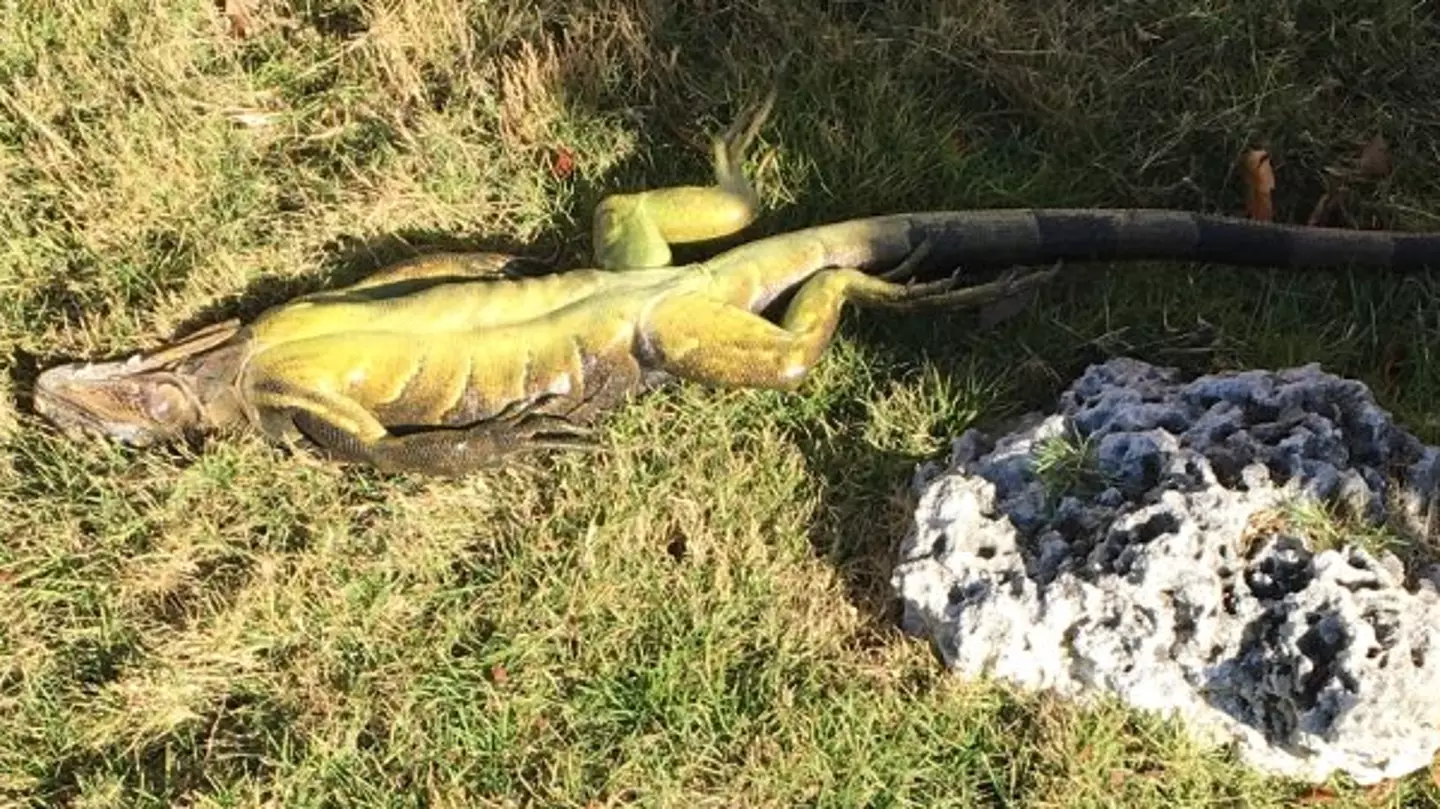
People in Florida are noticing the low temperatures and so are the wildlife. In particular, the iguanas living in trees are falling out after becoming so cold. Here's a video of a couple:
Warnings are now being issued to people so that they can be wary of reptiles potentially landing on them and causing injury.
So, as temperatures plummet the iguanas - which are cold-blooded animals - can get so cold that their bodies turn rigid, meaning that they can't cling on to whichever branch they're on.
They fall to the ground but, luckily, are quick to recover, which is why people passing are being urged not to go near them if they do land on the ground.
Vivian Gonzalez, weather anchor for WSVN, took to Twitter on 24 January writing: "We've entered FALLING IGUANA territory as temps. are in the widespread 40s across Broward & Miami-Dade.
"They slow down or become immobile when temps. drop & could fall from trees, but they are not dead. Don't approach. Once the sun is out, they will move."
Another warning reads: "The forecast looks very interesting this weekend for south #Florida - might see our first temps below 40 since Dec 2010! Definitely time for an extended-range iguana fall watch."
Back in 2020, Ron Magill, communications director for Zoo Miami told ABC News: "The temperature threshold for when iguanas begin to go into a dormant state depends greatly on the size of the iguana.
"Generally speaking, the larger the iguana, the more cold it can tolerate for longer periods."
And though this represents a danger for the animal, it also poses a threat to passersby, who may be hit by the falling reptiles.
According to animals specialists, adult males can reach a length of five-feet and weigh up to 20lb (9kg) - which, I think we can all agree, is something we could do with not crashing down on us.
Magill went on to explain to the publication, however, that many of the iguanas in South Florida have adapted to deal with the cold temperatures by digging deep burrows to help stay warm.
He also explained that they often live near bodies of water, the temperatures of which are often warmer than those of the air.
Featured Image Credit: Twitter/@PeggieVann